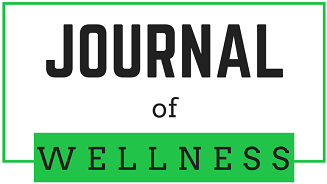
Abstract
Introduction: We hypothesize that a resident retreat with mindfulness training tailored for Emergency Medicine (EM) physicians can significantly reduce levels of burnout and perceived stress in EM residents.
Methods: We conducted an intervention study of 60 EM residents undergoing an annual resident retreat with a 2.5-hour mindfulness training. The retreat was a department-funded 2-day off-site experience with a wellness theme. The training was developed and delivered by an EM physician (JO'S) who is a Mindfulness-Based Stress Reduction (MBSR) teacher trainee, and a certified MBSR teacher (MD). The training focused on techniques that can be used on shift, such as mindful breathing, handwashing, eating/drinking, walking, and anchoring before resuscitations. The cohort contained an equal distribution of 1st, 2nd and 3rd year residents who received a financial incentive. The subjects completed the Maslach Burnout Inventory, Perceived Stress Scale and Mindful Attention and Awareness Scale at three time points: Time 1 - one month prior, Time 2 – one week post, Time 3 – one month post.
Results: The subjects were 60 EM residents (54% Male, 46% Female) with an average age of 29. Completion rates at the three time points were 70% (n = 42), 60% (n = 36) and 50% (n = 30) respectively. We found that Perceived Stress (ω2 = 0.15, p < 0.01) and Emotional Exhaustion (ω2 = 0.21, p < 0.01) decreased significantly over time in a linear progression across the three sampling periods. Though mindfulness as a trait did not change significantly during the study period, in the month after the retreat, 64% of resident respondents at Time 3 (n = 32) reported using the mindfulness techniques learned from the training at least 2 or 3 times a week on shift and 52% (n = 31) reported using them at least 2 or 3 times a week at home.
Conclusions: An EM resident retreat that included an EM specific mindfulness training significantly reduced perceived stress and emotional exhaustion. The learned mindfulness skills were readily adopted for use on shift. Further studies should investigate effectiveness of mindfulness training outside of the retreat format. Other wellness / academic activities that occur within the socially supportive milieu of a retreat could lead to the same significant reduction in burnout and perceived stress seen in the current study.
DOI
10.55504/2578-9333.1114
Recommended Citation
O'Shea, James; Dannenfelser, Mark; White, Melissa; Osborne, Anwar; Moran, Timothy P.; and Lall, Michelle D.
(2022)
"A Resident Retreat with Emergency Medicine Specific Mindfulness Training Significantly Reduces Burnout and Perceived Stress,"
Journal of Wellness: Vol. 4
:
Iss.
1
, Article 3.
DOI: https://doi.org/10.55504/2578-9333.1114
Available at:
https://ir.library.louisville.edu/jwellness/vol4/iss1/3
Included in
Curriculum and Instruction Commons, Educational Methods Commons, Emergency Medicine Commons, Medical Humanities Commons, Other Mental and Social Health Commons, Psychological Phenomena and Processes Commons
